Reports and Studies
| Publication Cover | Title |
|---|---|
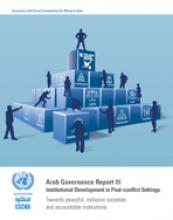 |
Arab Governance Report III: Institutional Development in Post-conflict Settings E/ESCWA/ECRI/2017/4 The third edition of the Arab Governance Report introduces post-war best practices from international and regional experiences. It suggests strategies and policies for Libya and Yemen that focus... |
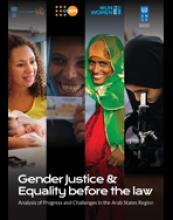 |
Gender Justice & Equality before the law: Analysis of Progress and Challenges in the Arab States Region The Economic and Social Commission for Western Asia (ESCWA) in partnership with the United Nations Development Programme (UNDP), the United Nations Population Fund (UNFPA), and the United... |
 |
Knowledge Hubs of Jordan: The Way Forward E/ESCWA/TDD/2017/TECHNICAL PAPER.2 This document reviews regional and global experiences that are of significance to the context of Jordan, and offers suggestions on how to solve the problems and to maximize the return on... |
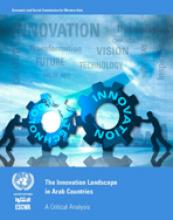 |
The Innovation Landscape in Arab Countries: A Critical Analysis E/ESCWA/TDD/2017/TECHNICAL PAPER.1 The present study proposes a framework for analysing the innovation landscape in Arab countries, which relies on the innovation policy framework described in an ESCWA study entitled “Innovation... |
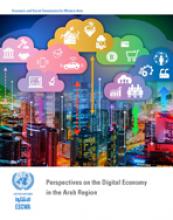 |
Perspectives of Digital Economy in the Arab Region E/ESCWA/TDD/2017/2 The study aimed to raise awareness on the Digital Economy in the Arab region and its contribution to Sustainable Development. Digital Economy is a concept characterizing a situation where... |
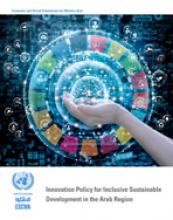 |
Innovation Policy for Inclusive Sustainable Development in the Arab Region E/ESCWA/TDD/2017/1 The aim of this study is to provide decision-makers in Arab countries with a framework for the formulation of policies for economic growth and achievement of the 2030 Agenda for Sustainable... |
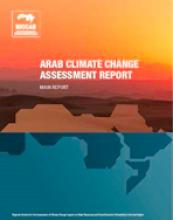 |
RICCAR Arab Climate Change Assessment Report E/ESCWA/SDPD/2017/RICCAR/Report RICCAR Arab Climate Change Assessment Report:... |
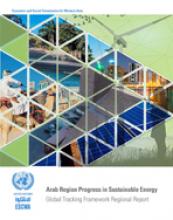 |
Arab Region Progress in Sustainable Energy Global Tracking Framework Regional Report E/ESCWA/SDPD/2017/2 The Arab region lacks sustainable natural resource management, mostly in the areas of energy efficiency and its overwhelming reliance on fossil fuels for virtually all its energy needs. War,... |
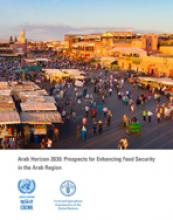 |
Arab Horizon 2030: Prospects for Enhancing Food Security in the Arab Region E/ESCWA/SDPD/2017/1 This publication aims to inform the debate on the status of food security in Arab countries, and provide policy options for enhancing food security in the future, in line with the overarching... |
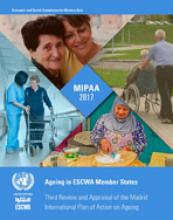 |
Ageing in ESCWA Member States: Third Review and Appraisal of the Madrid International Plan of Action on Ageing E/ESCWA/SDD/2017/TECHNICAL PAPER.12 The report provides a comprehensive analysis of the findings of the third review of the 2002 Madrid International Plan of Action on Ageing (MIPAA) in ESCWA countries and highlights prevalent... |
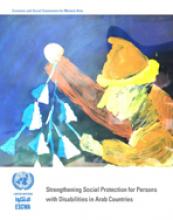 |
Social Protection for Persons with Disabilities in Arab Countries E/ESCWA/SDD/2017/2 This report presents an overview of social protection for persons with disabilities in Arab countries through the prism of the 2030 Agenda. Doing so, it focuses on social insurance, social... |
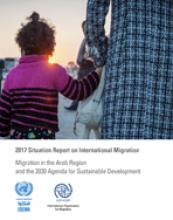 |
2017 Situation Report on International Migration: Migration in the Arab Region and the 2030 Agenda for Sustainable Development E/ESCWA/SDD/2017/1 This report describes the main trends and patterns in international migration in the Arab region from 2015 to 2017, provides a summary of important developments in migration governance in... |
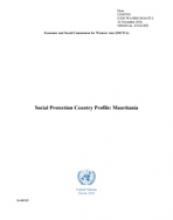 |
Social Protection Country Profile: Mauritania E/ESCWA/SDD/2016/CP.2 This report presents a comprehensive profile of social protection in Mauritania. It covers pensions, health care, cash transfers, and food and energy subsidies, as well as other social... |
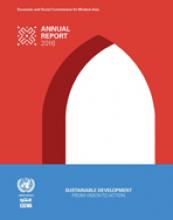 |
ESCWA Annual Report 2016 E/ESCWA/OES/2017/1 The 2016 Annual Report provides an overview of key economic and social developments throughout the Arab region, as well as facts and figures about the Economic and Social Commission for Western... |
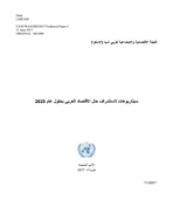 |
An economic outlook for the Arab region by 2025 E/ESCWA/EDID/2017/TECHNICAL PAPER.4 In this report, ESCWA proposes an integrated outlook based on three economic levers set by economic theories and best practices. First the institutional capacity or the so-called newly... |
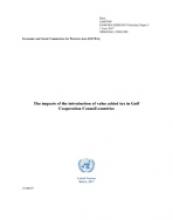 |
The impacts of the introduction of value added tax in Gulf Cooperation Council countries E/ESCWA/EDID/2017/TECHNICAL PAPER.3 This paper employs MIRAGE global CGE model to assess the implication of the implementation of a 5 percent Value added tax in the six GCC countries starting from 2018. The modelling simulation... |
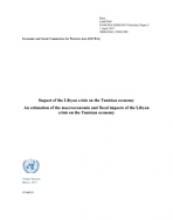 |
Impact of the Libyan crisis on the Tunisian economy: An estimation of the macroeconomic and fiscal impacts of the Libyan crisis on the Tunisian economy E/ESCWA/EDID/2017/TECHNICAL PAPER.2 In this paper, three models are presented to capture five different effects of the Libyan crisis on the Tunisian economy: i) the impact of the presence of Libyans in Tunisia on aggregate demand... |
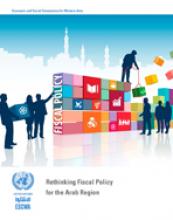 |
Rethinking Fiscal Policy for the Arab Region E/ESCWA/EDID/2017/4 Amid low oil prices and rising debts, the Arab region faces a challenging economic outlook. At the same time, development priorities related to decent work, poverty and social justice are more... |
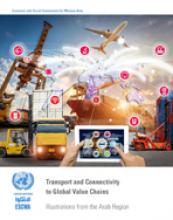 |
Transport and Connectivity to Global Value Chains: Illustrations from the Arab Region E/ESCWA/EDID/2017/3 This report explores the impact of transport infrastructure and services availability and efficiency on Global Value Chains connectivity. It also assesses whether the Arab region meets the... |
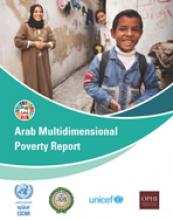 |
Arab Multidimensional Poverty Report E/ESCWA/EDID/2017/2 The Arab Multidimensional Poverty Report, the first of its kind following the launch of the 2030 Agenda, is the result of three years of collaboration between the League of Arab States’... |





